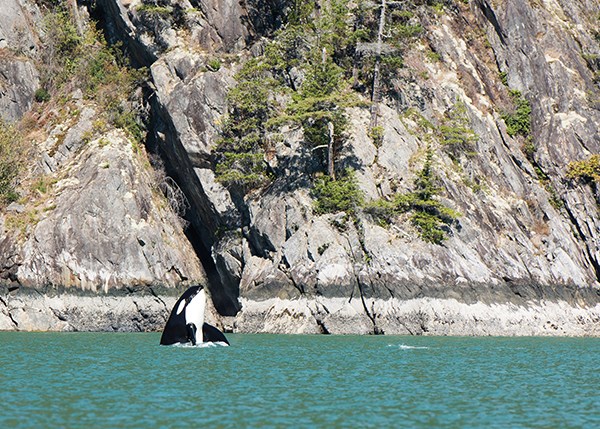If Ruth Simons has her way, Howe Sound will one day become a UNESCO biosphere reserve.
The director of the Future of Howe Sound Society has been seeking support from local communities for the idea.
UNESCO defines biosphere reserves as “Science for Sustainability support sites”– special places for testing interdisciplinary approaches to understanding and managing changes and interactions between social and ecological systems, including conflict prevention and management of biodiversity.
Simons looks at the UNESCO biosphere reserve at Clayoquat Sound on Vancouver Island as a model, and she said she was optimistic while in that area earlier this year.
“I got very motivated by what I saw. We feel really encouraged by suitability for it.”
The idea is not a new one, Simons said, adding that it came up about five years ago but did not gain momentum at the time. More recently, she formed a working group through the Friends of Howe Society to explore the idea.
The biospheres are designed to be learning sites looking at how to maintain healthy natural systems while meeting needs of nearby communities.
Around 600 reserves exist around the world, including 18 in Canada such as Mount Arrowsmith, the Niagara Escarpment and the Bay of Fundy region. Simons said the reserve idea is not about adding another layer of government but rather using legislation in some instances that might already be in place to promote better research and understanding of these complex ecological zones.
“We don’t need to necessarily create another set of rules,” she said.
Instead, she views the biosphere as a relationship that emphasizes sustainability in a “zone of cooperation” where people live, work and play. Simons said this can only help everyone, including industries looking to set up in Howe Sound.
“It’s in everybody’s interests to know what you’re in for,” she said.
On the other hand, having the UNESCO status also means there is some extra scrutiny when it comes to people’s activities.
“They know there may be international eyes watching,” she said.
An important criterion for a biosphere reserve is collaboration with First Nations peoples, so Simons has approached area nations about the idea, including the Squamish Nation.
The plan includes supporting the application to the UNESCO office in Ottawa for review and development before sending it to UNESCO’s Paris headquarters for a decision. Simons does not think these processes will be complete in time for the next deadline in the autumn of 2017. She views this as a longer process that could take some time to complete, or as she is calling it, “Vision 2020.”
“It takes a few years for this process,” she said. “You’re supposed to operating as a biosphere already for two years.”
For info, see www.futureofhowesound.org.



